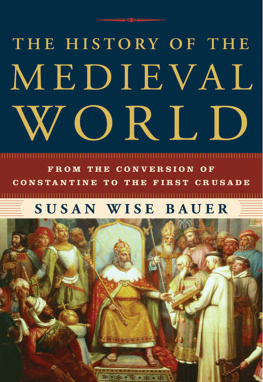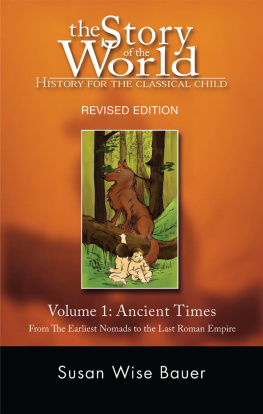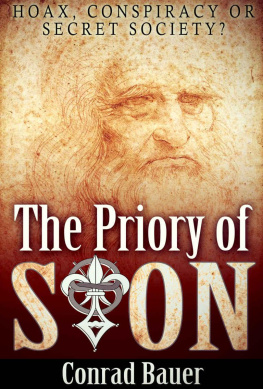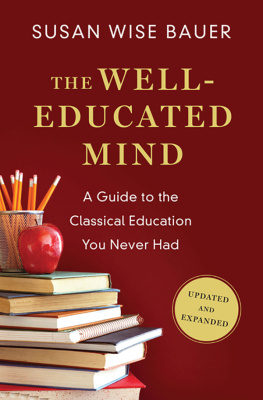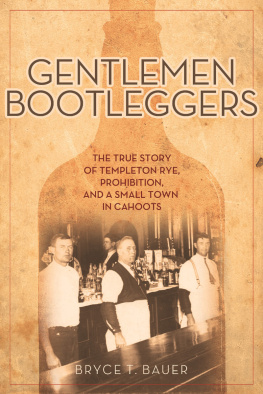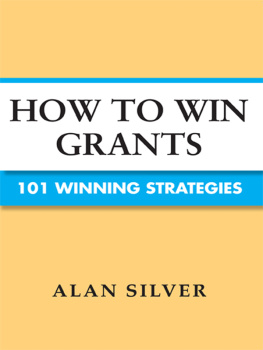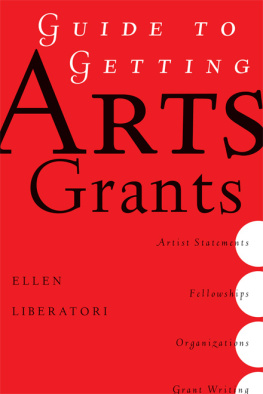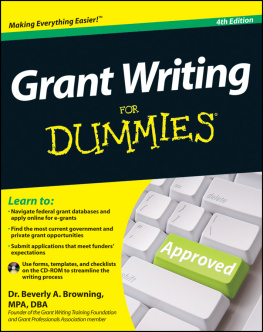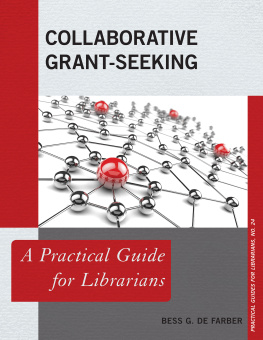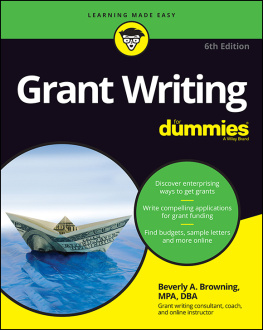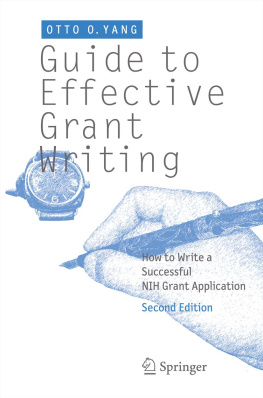About the Author
David G. Bauer has been a successful grantseeker for forty-five years. His experience in applying winning grants strategies has provided for a successful career as a K12 educator, college professor, director of development and grants management, and consultant to major nonprofit organizations. Over his career he has trained more than forty thousand individuals seeking grants from a variety of target populations and for many causes. This breadth of experience has enabled him to develop materials that are clear, simple, and easy to apply. He has authored ten books on winning grants and administering grants programs, some having appeared in several editions. He has also developed several videotape series and two software programs in the field. As president of David G. Bauer Associates, Inc., Bauer is continually developing new techniques, products, and programs to increase grants success. One such program is his highly successful research fellows program that he has conducted at several universities, including the University of Alabama, Wake Forest University, Marquette University, and Western Michigan University. Faculty members in these programs spend a year in intensive grants training and Bauer coaching based on Bauers tried and proven techniques. A significant increase in grants success has been attributed to these programs, which are based on the techniques presented in The How To Grants Manual.
1 Grantseeking Pitfalls and Potential Hazards
T HE FAST PACE OF OUR PROFESSIONAL LIVES and, not so coincidentally, advances in electronic technology have helped sustain two critical issues that continue to impact the grants marketplace. These include:
- deceitful grant schemes that employ the Internet to lure the uninitiated grantseeker to fall for unproductive or just plain false promises for fast and efficient grants success
- hiring a grant writer because we are short of time and think we can pay a consultant to embrace our idea, find a grantor, and create a proposal that we can take over once the money comes in
I have always maintained the utmost respect for the theoretical basis for the creation of the grants mechanism. Whether it is a wealthy individual who creates a foundation, a corporation that wants to further research in the marketplace, or a government granting agency that announces a funding opportunity, you cannot top the collective genius and creativity of mankind to propose solutions, initiate research, and implement model or demonstration projects that will increase our knowledge and impact a problem.
This book is dedicated to the grants process that has brought about great innovations in research and social advances in health, education, and society as a whole. But when there is $500 billion available in federal grants and another $66.84 billion in foundation and corporate grants, there will always be a small percentage of individuals who want to subvert the grants mechanism for their own selfish purposes. Unfortunately, fraud is alive and flourishing in the grants marketplace. We must be aware of it and be willing to alert authorities when we see it. We cannot allow the benefits that have been realized through the appropriate use of the grants mechanism to be discredited or overshadowed by those who abuse it for their ill-gotten gains.
Deceitful Grant Schemes
Over the last few years I have been retained by prosecuting attorneys at the Federal Trade Commission to provide research and expert testimony in their efforts to shut down several grant schemes. One of my cases was an operation that scammed over $100 million. It did so through a website that promised to provide subscribers with access to federal, state, and private grant opportunities to pay off their mortgage and credit card debt and provide them with free money. As part of my expert witness testimony I had to research hundreds of these claims. Of course, they proved to be false. Many of them used wording that preyed on individuals who believed there were federal grants available to pay for their personal needs. Of course, the scammer attempted to escape from any prosecution through the caveat that individuals are listed as eligible to apply for billions of dollars in government grants. But anyone who is familiar with the federal grants marketplace knows that few, if any individuals, will ever succeed in personally attracting a federal grant or showing up on a list of grantees.
You may have even seen or heard of grant scammers that encourage individuals to buy their products and services by leading potential customers to believe they are eligible to apply for billions in federal grants for a host of personal needs, including grants for European travel. Actually, one of my seminar participants brought one of the books in question to my seminar and I looked up the European travel opportunity. It turns out it was a Fulbright fellowshipan opportunity that is not available to anyone except truly outstanding scholars.
Unfortunately, these schemes discredit the real grants process. For example, one fraudulent website instructed its subscribers to submit a mass produced, one-size-fits-all proposal to numerous foundations and government programs rather than a tailored proposal to a carefully researched and selected grant program.
Irrespective of what these fraudulent websites state, developing a quality proposal still entails:
- initiating the grantseeking process early to avoid the deadly mistake of submitting hastily prepared proposals at the last minute
- researching each prospective grantor
- obtaining proposal review criteria
- using all of the procured information to create and tailor a quality, compelling proposal that meets the grantors agenda
Foremost, if you really want to assess or evaluate your chances of success with a particular grant program before you invest too much time in the process, look at the list of successful grantees to see what they proposed to do with the grant funding and how you compare. (All federal grantors must provide a list of successful grantees under the Freedom of Information Act.) On the foundation side, a few minutes reviewing the foundations 990 IRS tax return, which is available by law, will tell you who and what they fund. And so far, I have not found any private or public grantors that pay off home mortgages or credit card debts or provide free money! (See chapters 14 and 22 for an explanation of how to acquire a list of past grantees and 990 IRS tax returns.)
Determining Whether, When, and How to Use a Grant Writer or Consultant
Thousands of legitimate and expert consultants market their services to nonprofits to help them create grant proposals. Most are honest and, in some cases, their services can be very helpful. But even my consultant colleagues are concerned about individuals who have little knowledge of grantseeking and the proposal process, and hire grant writers without realizing how much the grant writer has to do or how much time it takes to develop a successful proposal.
Hiring a grant writer/consultant to create a proposal may seem like a viable alternative to many grantseekers because they do not believe they have the time to invest in proposal development. And there are some situations where hiring a grant writer/consultant may be appropriate. However, the conditions must be right. Before hiring a grant writer/consultant, ask yourself the following questions:
- Is this a grant you probably will not compete for again? If so, then using a grant writer may be okay. If you plan to reapply or seek spin-off proposals, you will pay over and over again for the consultants skills instead of developing them yourself.
- Will hiring a grant writer/consultant to develop this particular proposal have an adverse long-term effect on the rest of your staff or faculty? For instance, will they question why they should use their spare time to write any grants in the future? Will they always ask for a grant writer?


